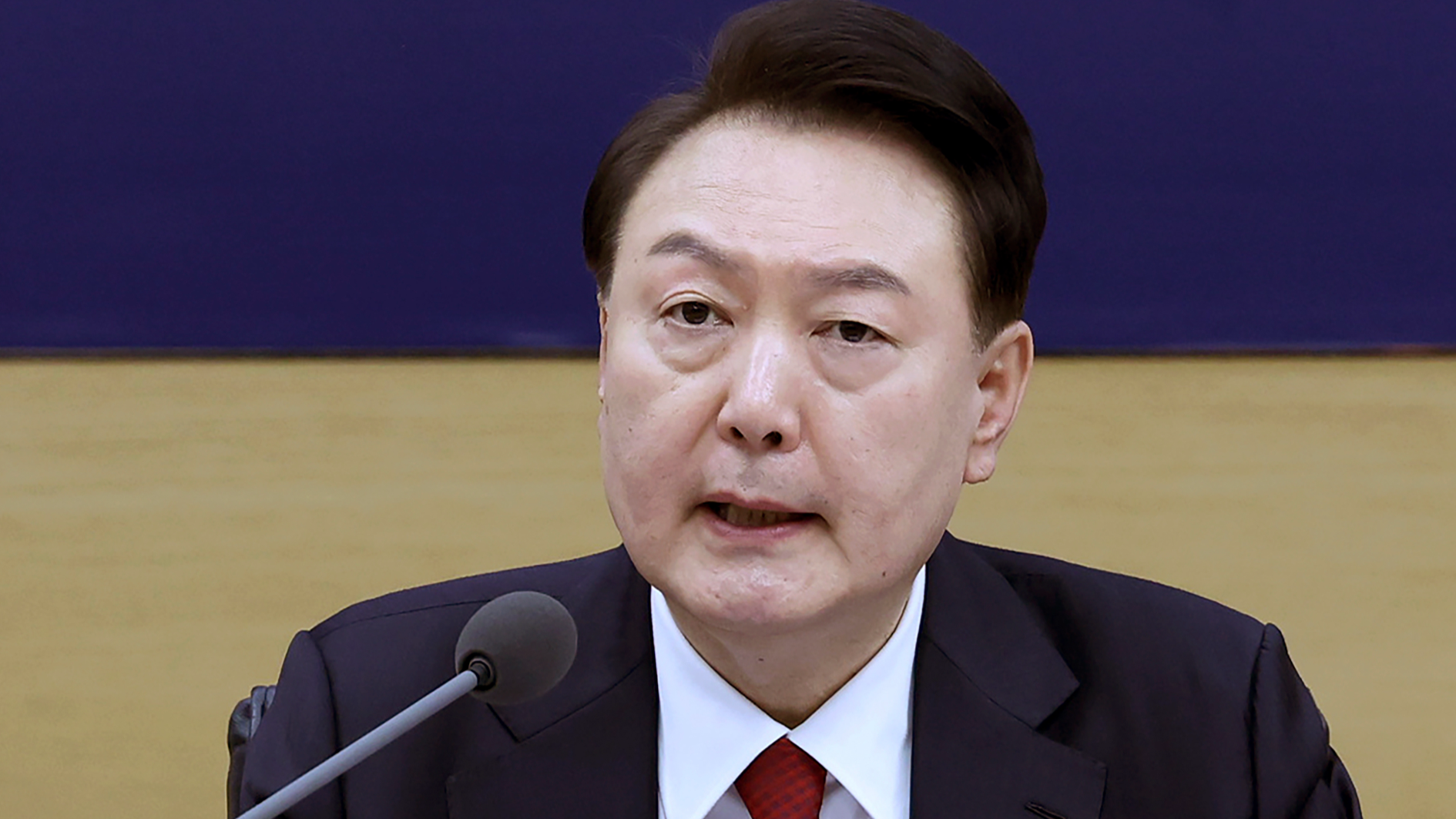South Korean president vows to improve communication, enhance people’s livelihoods

In the first public remarks since his party’s defeat in the general elections, South Korean President Yoon Suk-yeol said on April 16 that he will better communicate with the people and make enhancing their livelihoods a priority.
“I will humbly accept the public sentiment revealed in the general election,” Yoon said at a cabinet meeting. “I will listen to the public sentiment, and better communicate with the people with a more humble and flexible attitude.”
In the general elections held on April 10, Yoon’s ruling party, the People Power Party, won only 108 seats in the 300-member National Assembly.
Yoon started his five-year single term in May 2022. The National Assembly will serve a four-year term.
Since becoming president, Yoon has struggled with low approval ratings, hovering between 30 and 40 percent.
“In the past two years since I took office, though I have been focusing on the national interest and looking only at the people, I did not meet people’s expectations,” said Yoon, admitting his policy measures were not enough even though he worked to tackle inflation and property prices, and promote an economic recovery.
Yoon said the government has to take better care of people who are facing difficulties and reiterated he is committed to major reforms for the nation’s labor, education and pension systems, as well as the medical sector.
“We will fulfill our responsibilities in what the government can do and work closely with the National Assembly,” said Yoon.
Analysts said Yoon’s speech indicated his policy direction will largely remain the same after the election defeat.
Yoon’s speech “did not show much humility. He basically seemed to indicate that he believed that the policies that he advocated before were correct,” said Mason Richey, a professor at the Graduate School of International and Area Studies at the Hankuk University of Foreign Studies in Seoul.
Richey said Yoon did not show a willingness to compromise with the opposition or change his domestic priorities in a significant way.
He expects Yoon to have a very difficult time pushing through any key policy measures on domestic issues.
This is not only because of the opposition but also because “increasingly his own party allies and his own party supporters are going to distance themselves from him because they are looking toward the 2027 presidential election”, said Richey.
While Yoon reaffirmed his commitment to medical reform, how to deal with the striking doctors will be the biggest problem that Yoon has to solve in the short term because many of his supporters belong to the older generation who depend on the medical infrastructure, said Yang Jun-sok, an economics professor at the Catholic University of Korea.
More than 90 percent of South Korea’s 13,000 medical interns and residents have been on strike since late February as they protest against a plan by Yoon’s administration to increase the medical school enrollment quota by 2,000 next year from the current 3,058 intake.
“The pension reform is the one that is further along the way but it will be contentious because the opposition party wants to get some momentum on this issue on their side rather than on (Yoon’s) government side,” said Yang.
Yang said Yoon will need to convince the public that his reform measures are logical and fair to get his economic policies through.
April 16 marked the 10th anniversary of the Sewol ferry sinking accident, one of South Korea’s deadliest maritime disasters, that claimed 304 lives.
“I hope the victims rest in peace and once again express my deepest condolences to the bereaved families,” Yoon said, before ending his speech.


